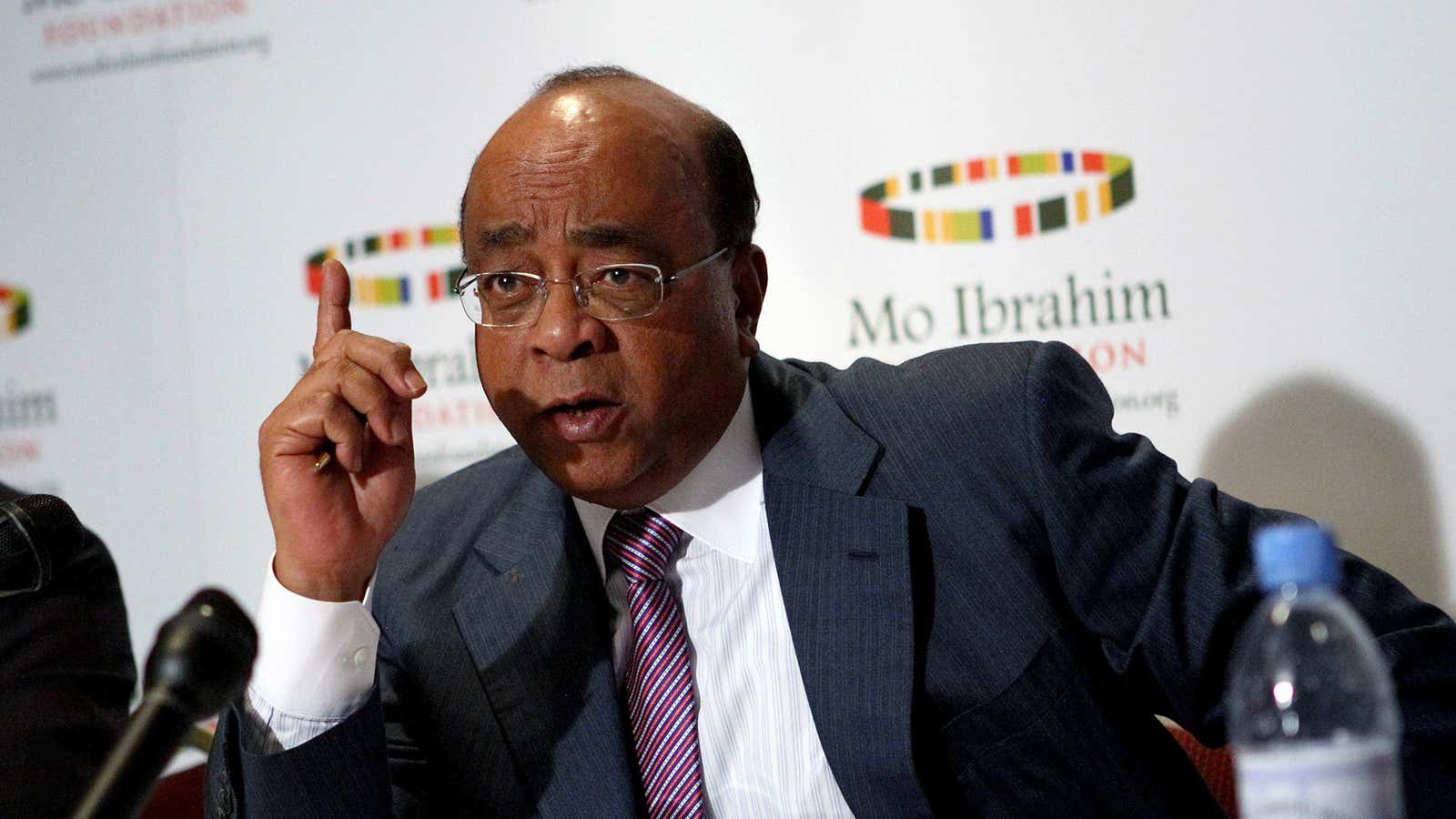The Mo Ibrahim Prize was created in 2006 by Sudanese billionaire Mo Ibrahim to “celebrate excellence in African leadership,” but a decade on, the Prize has not had much luck finding leaders to celebrate. Last awarded in 2014, the prize has come up empty once again this year. Only four winners have been announced since the award’s inception: Joaquim Chissano (Mozambique) in 2007, Festus Mogae (Botswana) in 2008, Pedro Pires (Cape Verde) in 2011, and Hifikepunye Pohamba (Namibia) in 2014.
A close look at the criteria for the prize explains why African leaders have rarely been considered eligible winners in six of the prize’s ten years. For one thing, only former democratically and transparently elected African leaders who served their constitutional terms and also left power democratically within the last three years are eligible. Beyond this, the criteria also takes into account their performance while in office as it recognizes leaders who ”developed their countries and strengthened democracy and human rights”
In Africa, where leaders tend to hold on to power through questionable elections and seek to extend their stay through unpopular constitutional amendments, the Mo Ibrahim Prize is left with a small pool of possible candidates. Mo Ibrahim says the decision to go years without naming any winners is designed to uphold the prize’s high standards. “It is not because we’re African that we have to accept sub-standards,” he told BBC.”It is a prize for excellence, not an entitlement or a pension.”
With $5 million paid out over ten years and $200,000 annually for life afterwards, the prize pales in comparison to the vast sums corrupt leaders are often accused of stealing. But Mo Ibrahim says money should not be the primary motivation. ”We are not trying to create billionaires,” he says. “The people who compare how much money they will get from bribes and from the prize are not our guys.”
Extending the award to ministers and other members of government has also been suggested as a way to enlarge the pool of potential winners. But Ibrahim insists this will not happen. “The decision-making and responsibility of moving a country forward—or backward—lies with the president,” he insists, “not with ministers.”
